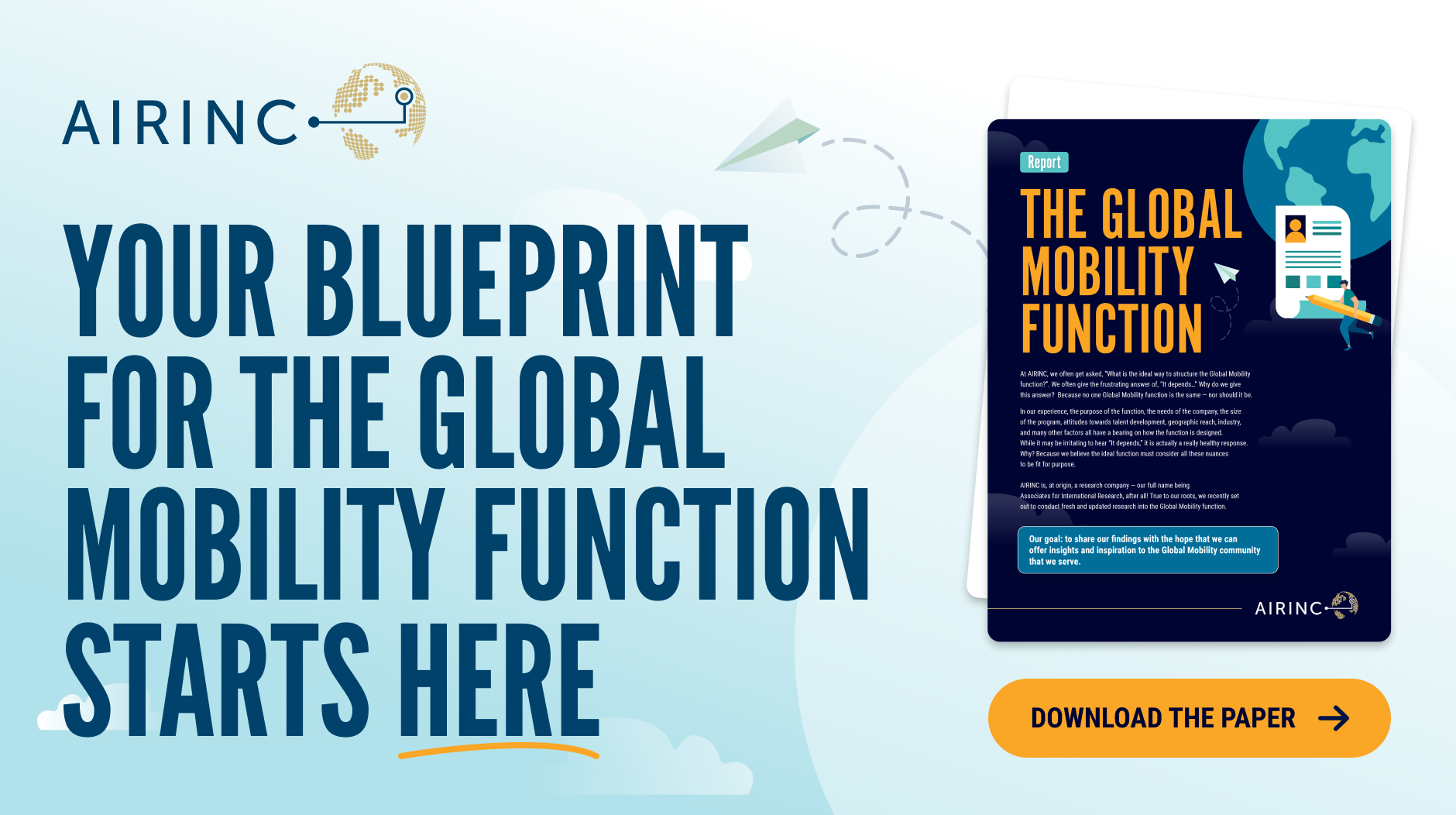Jason, you help a lot of APAC Hq’ed companies develop mobility programs, what’s unique about the APAC context?
Many APAC-headquartered organizations have a less diverse expatriate demographics (e.g., assignments originated from a single home country, mostly inter-regional assignments, and homogenous assignee profiles, etc.), and Global Mobility has traditionally been an operationally oriented function focusing on tactical processes and compliance to facilitate relocation of employees. With the need to attract and develop talent to stay competitive with local as well as global peers in the region, however, there has been an increased level of interests in creating a global mobility program that supports talent strategy. Therefore, in recent years we have advised many clients in APAC on re-designing their global mobility programs with policy flexibility to accommodate various business and talent needs and the mobility function serving a more strategic role in the organization.
There is such a range of wages, tax rates, and living conditions across APAC, what challenges does this pose?
Variety is the spice of life 😊… but yes, the wide-ranging conditions across APAC have created mobility challenges for some organizations in APAC, specifically when employees are asked to move to locations in the region with little affinity to their origins, e.g., lower salary/net income at host vs. home, differences in language and culture, and lack of expatriate community or community of their respective nationality, etc.
This issue is difficult particularly for companies with limited policy options and rigid guidelines, and it has resulted in employees declining assignments, misuse of policies, and in some cases failed assignments.
To address this problem and promote mobility, companies need to regularly review their programs to ensure that they offer the right support and flexibility so employees can feel more at ease toward international assignment opportunities.
What’s more common in APAC – local plus or home based balance sheet packages?
Given the wide range of wages, tax rates, and living conditions across APAC combined with employees’ preference to maintain home social and pension benefits, I find that APAC-headquartered organizations generally follow the home-based balance sheet approach for international assignment compensation.
That said, companies in the region continue to explore local or local-plus packages as a lower-cost alternative when it is effective in mobilizing talent and is competitive with the market practice. This approach is often discussed for transfers between Hong Kong and Singapore (two widely viewed global financial hubs in the region that share high cultural and economic affinity) as well as developmental assignments for high-potential employees.
In the foreseeable future, I believe the home-based balance sheet approach will still remain as the popular choice for assignment packages, but perhaps with more flexibility on the assignment allowance & support to address different business and talent needs. The host-based approach will be used, albeit for very specific scenarios.
What is the biggest trend underway in APAC mobility?
Flexibility! Like anywhere in the world, workforce in the region is going through a generational change, and I believe this has impacted APAC-headquartered organizations’ philosophy in talent mobilization. Many companies in the region have a traditional corporate culture and have maintained a ‘one-size-fits all’ approach for mobility until recently. I have had frequent discussions with our APAC clients about mobility program optimizations so they can better align their mobility solutions to support business and talent needs and enhance assignment experience for employees. It is a refreshing change in the region, and I am happy that our APAC team has been able to support our clients with this trend during this period.

You have been an expat yourself, based on your experience, what is the support you would most value or recommend be offered by companies?
Being on assignment in a foreign country, while exciting, can be a stressful experience, especially when you are uncertain about your role post-assignment. The support that was most valuable to me from my assignment experience was the pre-assignment briefing provided by my home & host managers as well as ongoing check-in’s, which helped set the expectation of my role and responsibilities at the outset and gave me opportunities to discuss my performance and career plans throughout the course of the assignment.
Some of our clients in APAC have asked us what they could offer to further improve the experience for their assignees and ensure assignment success. I believe proactive career planning and counselling is just as effective and valuable as any other allowances/benefits a company can offer to achieve this goal.

Tell us a little bit about yourself...
Outside of work, I spend most of my time with my family, including a 3 ½-year old girl and 6-month-old boy. AIRINC has given me the opportunities to travel all over APAC, and I look forward to the days when I can bring my children along to experience the wonderfully diverse culture across the region.
AIRINC’s Advisory Services team of seasoned mobility consultants are dedicated to helping you. With deep expertise in mobility strategy, program operations, process design, benchmarking, compensation, and policy development, you can leverage the experts you need to drive meaningful change in your mobility program.





%20(33).png)


